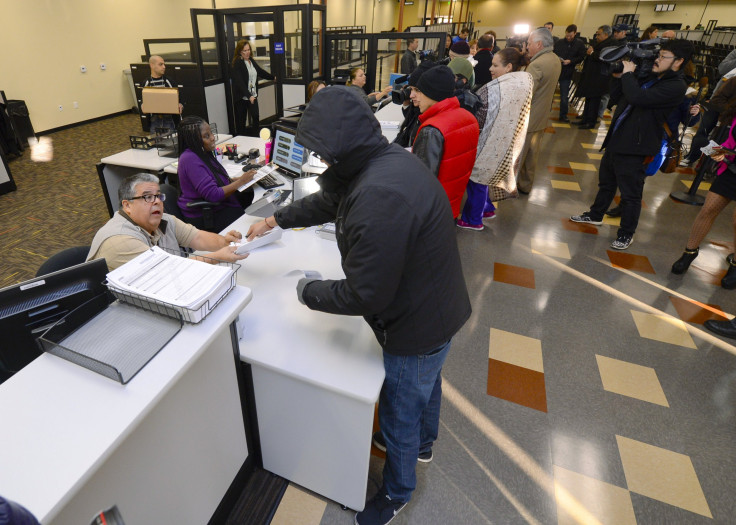California Expands Voter Registration Access To Millions

Millions more Californians could soon become registered voters after Gov. Jerry Brown signed so-called “motor voter” legislation Saturday. The bill would automatically register to vote any Californian who renews a driver’s license or signs up for a new one.
Brown said the bill, dubbed the California New Motor Voter Act, would “help improve elections and expand voter rights and access in California.” The state has struggled with record-low voter participation in recent elections, with just over one in five Californians casting gubernatorial ballots in 2014.
The sagging figures have been particularly acute among young voters. Only 8.2 percent of Californians 18 to 24 years of age voted last November.
California Secretary of State Alex Padilla, who sponsored the bill, has said 6.6 million eligible Californians remain unregistered. Padilla said the law would “make our democracy stronger by removing a key barrier to voting for millions of California citizens.”
Registration appears to be a sizeable hurdle for some voters. At least 40,000 Californians logged onto the the Secretary of State website on Election Day 2014 in hopes of registering, though the window had already closed.
The bill shifts California’s registration system from an opt-in to an opt-out process. Visitors to the Department of Motor Vehicles will be automatically signed up to vote while renewing or acquiring driver’s licenses, unless they expressly reject the option.
Conservative groups like the Heritage Foundation have warned that laws like California’s could “damage the integrity of elections.”
But voting rights groups like the Brennan Center for Justice at New York University laud automatic voter registration measures, which have been proposed in at least 17 other states and backed by Democratic presidential hopefuls Hillary Clinton, the former U.S. secretary of state, and Sen. Bernie Sanders, (Ind-Vt.). Oregon passed the first such law in March.
© Copyright IBTimes 2024. All rights reserved.












